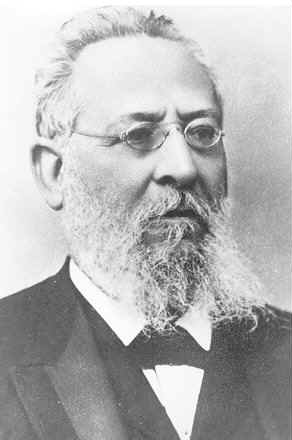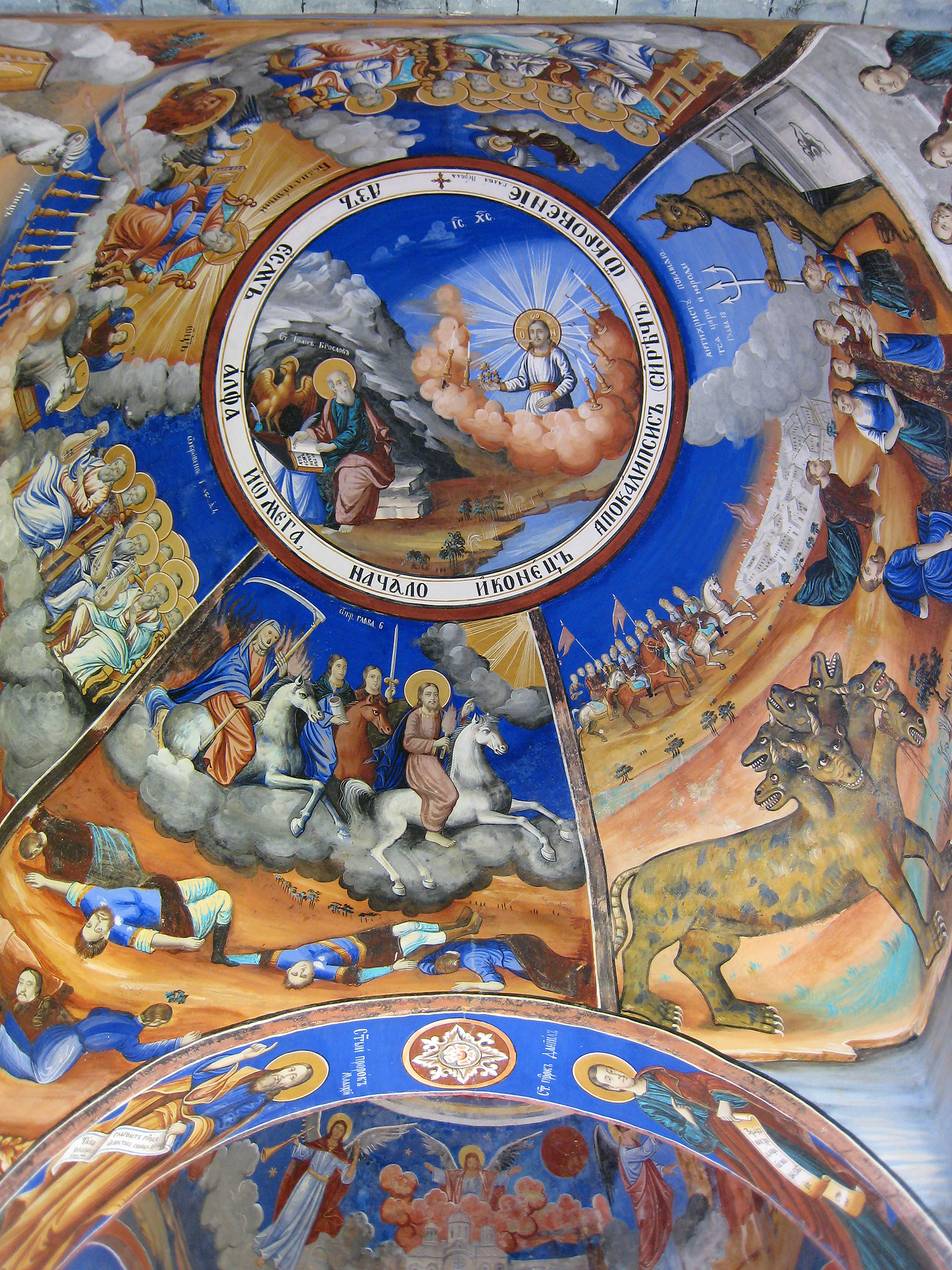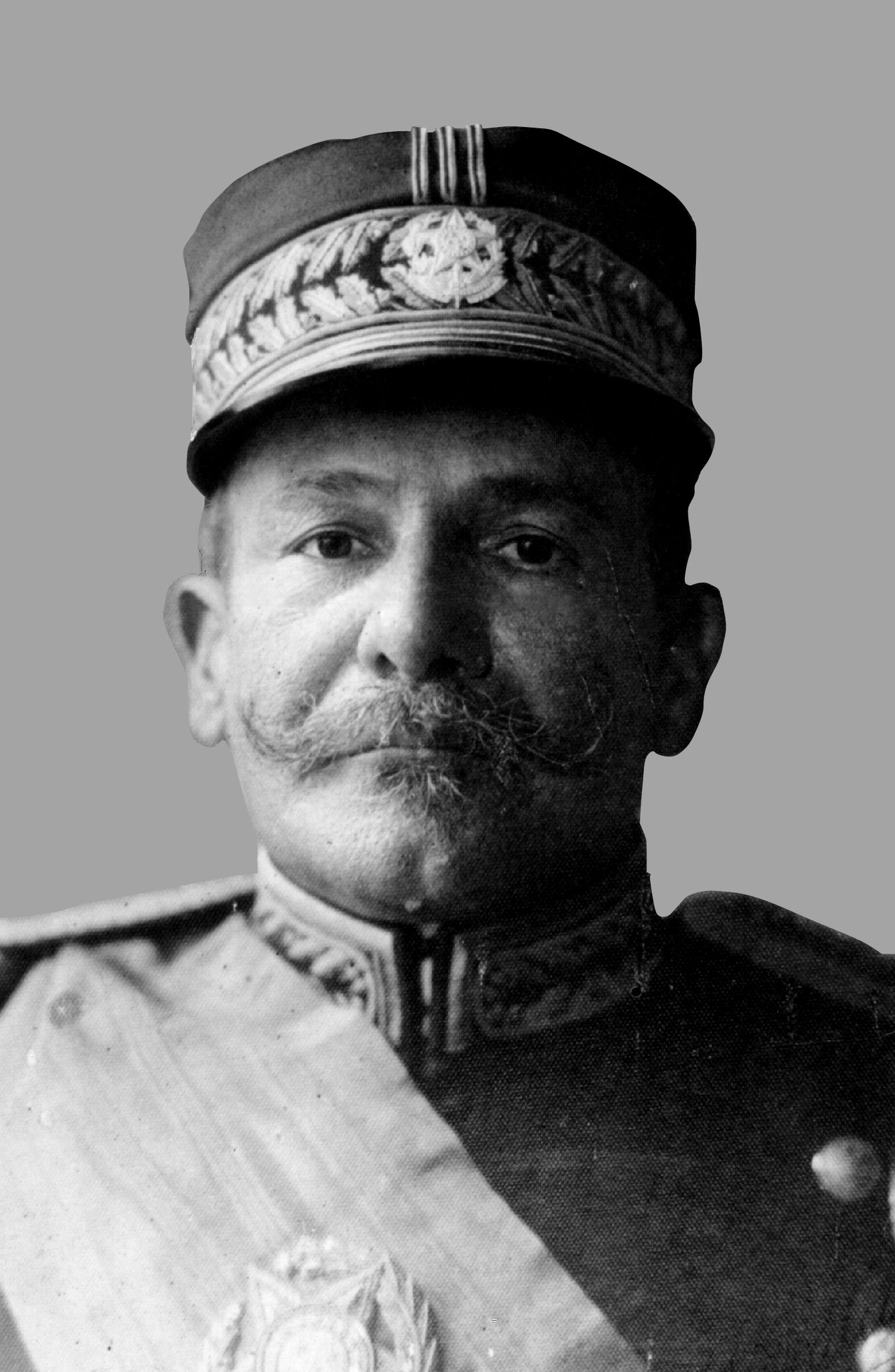|
João Maria (monk)
João Maria was the name given to three lay monks who were in turn active in southern Brazil during the second half of the 19th century and early 20th century, although two originally had other names and the third was only called João Maria after his death. They were all ascetic wanderers and preachers who healed with herbs. The third led a peasant revolt in 1912. Their followers think they were the same person in different incarnations, a saint. The Monge State Park maintains a cave where the first monk once lived, visited by thousands of pilgrims annually. João Maria D’Agostini The first João Maria was born in Piedmont, Italy. As a young man he entered the seminary in Rome, but left before being ordained priest. He wandered in Europe, then came to South America where he travelled in Venezuela, Colombia, Ecuador, Peru and finally Brazil. There are records from 1844 of João Maria going from Pará to Rio de Janeiro, where he became famous as a healer and counselor. He moved t ... [...More Info...] [...Related Items...] OR: [Wikipedia] [Google] [Baidu] |
Monge State Park
The Monge State Park () is a State park (Brazil), state park in the state of Paraná (state), Paraná, Brazil. It is named after a monk, or monks, who was said to have lived in a cave in the park for a while. The cave is now a pilgrimage destination for the monk's devotees. Location The Monge State Park is in the municipality of Lapa, Paraná. It has an area of in the Atlantic Forest biome. The vegetation consists of open fields with some groups of trees and forests. There are access roads cutting through the park, and plantations of exotic trees. The park also has waterfalls and a source of water that it considered to be miraculous. It is in the Iguaçu River basin. History The Monge State Park was created by decree 33.427 of 21 November 1960, and altered by subsequent decrees and laws in 1962, 1964, 1977 and 1979. A quarry was operated in the park at one time, but has been closed down. Ownership is divided between the Environmental Institute of Paraná (IAP) and the municipal ... [...More Info...] [...Related Items...] OR: [Wikipedia] [Google] [Baidu] |
Federalist Riograndense Revolution
The Federalist Revolution ( Portuguese: ''Revolução Federalista'') was a civil war that took place in southern Brazil between 1893 and 1895, fought by the federalists, opponents of Rio Grande do Sul state president, Júlio de Castilhos, seeking greater autonomy for the state, decentralization of power by the newly installed First Brazilian Republic. Inspired by the monarchist ideologies of Gaspar da Silveira Martins, who had been one of the most prominent politicians by the end of the monarchy and acted as political head of the revolution, the federalists had Gumercindo Saraiva as the military head supported by his brother Aparicio Saraiva, of the Uruguayan National Party, and by the Navy rebels who, after being defeated at the capital following the Rio de Janeiro Affair, moved south to strengthen the federalist forces. Also known as ''maragatos'', the federalists fought the republican forces of the Brazilian Army headed by the Rio Grande do Sul senator and army general Pi ... [...More Info...] [...Related Items...] OR: [Wikipedia] [Google] [Baidu] |
Brazilian Roman Catholic Monks
Brazilian commonly refers to: * Brazil, a country * Brazilians, its people * Brazilian Portuguese, its dialect Brazilian may also refer to: * "The Brazilian", a 1986 instrumental music piece by Genesis * Brazilian Café, Baghdad, Iraq (1937) * Brazilian cuisine ** Churrasco, or Brazilian barbecue * Brazilian-cut bikini, a swimsuit revealing the buttocks * Brazilian waxing, a style of pubic hair removal * Mamelodi Sundowns F.C., a South African football club nicknamed ''The Brazilians'' See also * Brazil (other) * ''Brasileiro'', a 1992 album by Sergio Mendes * Brazilian jiu-jitsu, a martial art and combat sport system * Culture of Brazil * Football in Brazil Association football, Football is the most popular sport in Brazil and a prominent part of the country's national identity. The Brazil national football team has won the FIFA World Cup five times, the most of any team, in 1958 FIFA World Cup, ... {{Disambiguation Language and nationality disambiguation pages ... [...More Info...] [...Related Items...] OR: [Wikipedia] [Google] [Baidu] |
Apocalypse
Apocalypse () is a literary genre originating in Judaism in the centuries following the Babylonian exile (597–587 BCE) but persisting in Christianity and Islam. In apocalypse, a supernatural being reveals cosmic mysteries or the future to a human intermediary. The means of mediation include dreams, visions and heavenly journeys, and they typically feature symbolic imagery drawn from the Jewish Bible, cosmological and (pessimistic) historical surveys, the division of time into periods, esoteric numerology, and claims of ecstasy and inspiration. Almost all are written under pseudonyms (false names), claiming as author a venerated hero from previous centuries, as with the Book of Daniel, composed during the 2nd century BCE but bearing the name of the legendary Daniel from the 6th century BCE. Eschatology (from Greek ''eschatos'', last) concerns expectations of the end of the present age. Thus, apocalyptic eschatology is the application of the apocalyptic world-view to the e ... [...More Info...] [...Related Items...] OR: [Wikipedia] [Google] [Baidu] |
São Paulo (state)
São Paulo (, ) is one of the Federative units of Brazil, 26 states of the Brazil, Federative Republic of Brazil and is named after Paul the Apostle, Saint Paul of Tarsus. It is located in the Southeast Region, Brazil, Southeast Region and is bordered by the states of Minas Gerais to the north and northeast, Paraná (state), Paraná to the south, Rio de Janeiro (state), Rio de Janeiro to the east and Mato Grosso do Sul to the west, in addition to the Atlantic Ocean to the southeast. It is divided into List of municipalities in São Paulo, 645 municipalities. The total area is km2, which is equivalent to 2.9% of Brazil's surface, being slightly larger than the United Kingdom. Its capital is the São Paulo, municipality of São Paulo. With more than 44 million inhabitants in 2022, São Paulo is the Federative units of Brazil#List, most populous Brazilian state (around 22% of the Brazilian population), the List of first-level administrative divisions by population, world's 28th-mos ... [...More Info...] [...Related Items...] OR: [Wikipedia] [Google] [Baidu] |
Soledade
Soledade is a municipality in Rio Grande do Sul, Brazil. The city is nicknamed the ''Cidade das Pedras Preciosas'' meaning the ''City of Precious Stones'' or ''Rare Gems''. Much of the amethyst sold in the world comes from the mines of Rio Grande do Sul near Soledade. Most of the factories in Soledade process and sell these stones internationally. As of 2020, the estimated population was 31,035. Its other famous export apart from its precious stones, is Fábio Rochemback who played football for Grêmio. Another notable citizen was Joaquim Mauricio Cardoso, a lawyer, professor, and politician. He was the governor for the state of Rio Grande do Sul, having a public school in Soledade founded after him. Geography Climate See also * List of municipalities in Rio Grande do Sul This is a list of the municipalities in the state of Rio Grande do Sul (RS), located in the South Region of Brazil. Rio Grande do Sul is divided into 497 municipalities, which are grouped into 35 m ... [...More Info...] [...Related Items...] OR: [Wikipedia] [Google] [Baidu] |
Contestado War
The Contestado War (), broadly speaking, was a guerrilla war for land between settlers and landowners, the latter supported by the Brazilian state's police and military forces, that lasted from October 1912 to August 1916. It was fought in an inland southern region of the country, rich in wood and yerba mate, that was called Contestado because it was contested by the states of Paraná (state), Paraná and Santa Catarina (state), Santa Catarina as well as Argentina. The war had its casus belli in the social conflicts in the region, the result of local disobediences, particularly regarding the regularization of land ownership on the part of the caboclos. The conflict was permeated by religious fanaticism expressed by the messianism and faith of the rebellious caboclos that they were engaged in a religious war; at the same time, it reflected the dissatisfaction of the population with its material situation. Background Status of monks The Contestado War is often considered to have ... [...More Info...] [...Related Items...] OR: [Wikipedia] [Google] [Baidu] |
José Maria De Santo Agostinho
José Maria de Santo Agostinho, born Miguel Boaventura Lucena (died 22 October 1912), was a Brazilian religious leader from the state of Santa Catarina. He was the third of three monks named João Maria who appeared in turn in southern Brazil, preaching and healing with herbs. He was the original leader of the peasants in the unsuccessful Contestado War (1912–16), and was killed in one of the first encounters with government troops. Life José Maria de Santo Agostinho was formerly the soldier Miguel Lucena de Boaventura. He settled in Taquaraçu, Santa Catarina, where he gained a reputation for healing powers. He resurrected a young woman thought to be dead and cured the wife of a colonel of a disease that the doctors had proclaimed uncurable. He was literate, which was unusual in among the local country people, and wrote notebooks of herbal recipes. He established a "people's pharmacy" where he would provide herbs, seeds and roots as well as prayers. José Maria claim ... [...More Info...] [...Related Items...] OR: [Wikipedia] [Google] [Baidu] |
José Maria Monge Do Contestado
José is a predominantly Spanish and Portuguese form of the given name Joseph. While spelled alike, this name is pronounced very differently in each of the two languages: Spanish ; Portuguese (or ). In French, the name ''José'', pronounced , is an old vernacular form of Joseph, which is also in current usage as a given name. José is also commonly used as part of masculine name composites, such as José Manuel, José Maria or Antonio José, and also in female name composites like Maria José or Marie-José. The feminine written form is ''Josée'' as in French. In Netherlandic Dutch, however, ''José'' is a feminine given name and is pronounced ; it may occur as part of name composites like Marie-José or as a feminine first name in its own right; it can also be short for the name ''Josina'' and even a Dutch hypocorism of the name ''Johanna''. In England, Jose is originally a Romano-Celtic surname, and people with this family name can usually be found in, or traced to, the ... [...More Info...] [...Related Items...] OR: [Wikipedia] [Google] [Baidu] |



